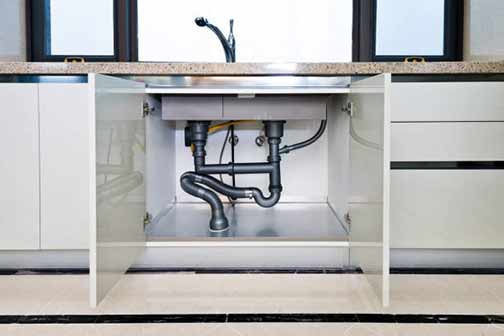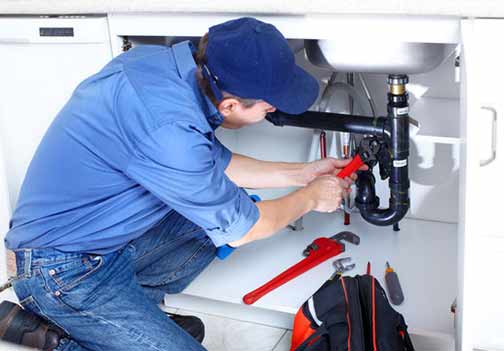
Sink drain issues are a common problem in many households, and recognizing the symptoms early can prevent more serious plumbing problems down the line. Common sink drain issues include slow draining, complete blockage, unpleasant odors, and water backing up. Each of these issues can indicate a different underlying problem that may require professional attention.
Slow draining is often the first sign of a developing clog. It can be caused by a buildup of grease, soap scum, hair, or other debris in the pipes. If left untreated, the clog can become more severe, leading to a complete blockage. Unpleasant odors emanating from your sink drain can be a sign of decaying organic matter trapped in the pipes, which can create a breeding ground for bacteria.
Water backing up in your sink is a clear indication of a drainage problem, which can lead to water damage and potential health hazards if not addressed promptly. Recognizing these common sink drain issues early can help you take the necessary steps to resolve them before they become major problems.
When DIY Solutions Aren’t Enough to Fix Sink Drain Problems
Many homeowners attempt to resolve sink drain issues on their own using DIY solutions such as plungers, drain snakes, or chemical drain cleaners. While these methods can be effective for minor clogs, they often provide only a temporary fix. If you find yourself repeatedly dealing with the same drain issues, it may be time to call a plumber. Persistent problems can indicate a more serious issue that requires professional expertise to diagnose and resolve.
DIY solutions can sometimes make the problem worse if not used correctly. For example, using a plunger incorrectly can push the clog further down the drain, making it more difficult to remove. Chemical drain cleaners can also damage your pipes if used too frequently or in large quantities. If you have tried multiple DIY solutions and the problem persists, it’s best to call a professional plumber who has the tools and experience to properly diagnose and fix the issue.
Understanding the Causes and Solutions for Slow Draining Sinks
A slow draining sink is often the first sign of a developing clog. While it might be tempting to ignore the problem or use a chemical drain cleaner, these solutions are often only temporary. A slow drain can be caused by a buildup of grease, soap scum, hair, or other debris in the pipes. If left untreated, the clog can become more severe, leading to a complete blockage. A professional plumber can use sewer rodding to thoroughly clean the pipes and ensure proper drainage.
In addition to professional cleaning, there are some preventative measures you can take to avoid slow draining sinks. Regularly cleaning your sink drain, using a drain strainer to catch debris, and avoiding pouring grease or oil down the drain can help keep your pipes clear. Additionally, scheduling routine plumbing inspections with a professional plumber can help identify and address potential problems before they become serious issues.
Dealing with Complete Blockages in Your Sink Drain
When a sink drain is completely blocked, water will not drain at all. This can be a frustrating and inconvenient problem that often requires immediate attention. Complete blockages can be caused by a variety of factors, including foreign objects lodged in the pipes, a buildup of debris, or even tree roots infiltrating the plumbing system. A professional plumber has the equipment and expertise to locate and remove the blockage, restoring proper function to your sink drain.
Attempting to remove a complete blockage on your own can be difficult and may cause further damage to your pipes. Professional plumbers use specialized tools such as sewer cameras to locate the blockage and determine the best method for removal. They may also use hydro-jetting, which involves using high-pressure water to clear the blockage and clean the pipes. By calling a plumber to address a complete blockage, you can ensure the problem is resolved quickly and effectively.

Addressing Unpleasant Odors from Your Sink Drain
Unpleasant odors emanating from your sink drain can be a sign of a serious problem. These odors are often caused by decaying organic matter trapped in the pipes, which can create a breeding ground for bacteria. In some cases, the odor may be due to a sewer gas leak, which can pose a health hazard. If you notice persistent foul smells coming from your sink drain, it’s important to call a plumber to investigate and address the issue.
In addition to professional cleaning, there are some steps you can take to prevent unpleasant odors from your sink drain. Regularly cleaning your sink drain with a mixture of baking soda and vinegar can help remove buildup and eliminate odors. Using a drain strainer to catch debris and avoiding pouring grease or oil down the drain can also help prevent odors. If the problem persists, a plumber can conduct a thorough inspection to identify and address the root cause of the odor.
Understanding the Causes and Solutions for Water Backing Up in Your Sink
Water backing up in your sink is a clear indication of a drainage problem. This issue can occur when there is a blockage in the pipes or when the main sewer line is clogged. Water backing up can lead to water damage and potential health hazards if not addressed promptly. A professional plumber can diagnose the cause of the backup and take the necessary steps to resolve the issue, preventing further damage to your home.
In addition to professional cleaning, there are some preventative measures you can take to avoid water backing up in your sink. Regularly cleaning your sink drain, using a drain strainer to catch debris, and avoiding pouring grease or oil down the drain can help keep your pipes clear. Additionally, scheduling routine plumbing inspections with a professional plumber can help identify and address potential problems before they become serious issues.
Identifying and Addressing Recurring Drain Issues
If you find yourself dealing with recurring drain issues, it’s a sign that there may be a more serious underlying problem. Repeated clogs and slow drains can indicate issues such as pipe corrosion, tree root infiltration, or improper pipe installation. A plumber can conduct a thorough inspection of your plumbing system to identify and address the root cause of the problem, providing a long-term solution rather than a temporary fix.
Recurring drain issues can be frustrating and inconvenient, and attempting to resolve them on your own can be time-consuming and ineffective. A professional plumber has the tools and expertise to properly diagnose and fix the problem, ensuring your plumbing system functions properly. By addressing the root cause of the issue, a plumber can provide a long-term solution that prevents future problems and saves you time and money in the long run.
Recognizing Visible Signs of Pipe Damage in Your Home
Visible signs of pipe damage, such as cracks, leaks, or rust, are a clear indication that it’s time to call a plumber. Damaged pipes can lead to water leaks, which can cause significant damage to your home and increase your water bills. A professional plumber can assess the extent of the damage and recommend the best course of action, whether it be repairing or replacing the affected pipes.
In addition to professional repairs, there are some preventative measures you can take to avoid pipe damage. Regularly inspecting your pipes for signs of damage, such as cracks or leaks, can help you catch problems early before they become serious. Additionally, scheduling routine plumbing inspections with a professional plumber can help identify and address potential problems before they cause significant damage to your home.

Understanding the Causes and Solutions for Strange Noises in Your Sink Drain
Strange noises coming from your sink drain, such as gurgling or bubbling sounds, can indicate a problem with the plumbing system. These noises are often caused by air trapped in the pipes, which can result from a blockage or a venting issue. A plumber can diagnose the cause of the noise and take the necessary steps to resolve it, ensuring your plumbing system functions properly.
In addition to professional repairs, there are some preventative measures you can take to avoid strange noises in your sink drain. Regularly cleaning your sink drain, using a drain strainer to catch debris, and avoiding pouring grease or oil down the drain can help keep your pipes clear. Additionally, scheduling routine plumbing inspections with a professional plumber can help identify and address potential problems before they cause significant damage to your home.
Exploring the Benefits of Professional Plumbing Services for Sink Drain Issues
Hiring a professional plumber to address your kitchen sink drain issues offers several benefits. Plumbers have the expertise and equipment to accurately diagnose and resolve plumbing problems, ensuring a long-term solution. Additionally, professional plumbers can identify potential issues before they become major problems, saving you time and money in the long run. By calling a plumber at the first sign of trouble, you can prevent costly repairs and maintain the proper function of your plumbing system.
Professional plumbers also offer a range of services beyond just fixing sink drain issues. They can conduct routine plumbing inspections, perform preventative maintenance, and provide advice on how to keep your plumbing system in good condition. By working with a professional plumber, you can ensure your home remains safe and comfortable, and avoid the stress and inconvenience of dealing with plumbing problems on your own.
Implementing Preventative Maintenance Tips to Avoid Sink Drain Issues
Preventative maintenance can help you avoid many common sink drain issues. Regularly cleaning your sink drain, using a drain strainer to catch debris, and avoiding pouring grease or oil down the drain can help keep your pipes clear. Additionally, scheduling routine plumbing inspections with a professional plumber can help identify and address potential problems before they become serious issues.
In addition to these preventative measures, there are some other steps you can take to keep your plumbing system in good condition. Avoid using chemical drain cleaners, as they can damage your pipes over time. Instead, use natural cleaning solutions such as baking soda and vinegar. Also, be mindful of what you put down your drain, and avoid disposing of items such as coffee grounds, eggshells, and fibrous vegetables, which can cause clogs. By implementing these preventative maintenance tips, you can keep your sink drain and plumbing system in good condition and avoid costly repairs.
Conclusion: Knowing When to Call a Plumber for Your Sink Drain Issues
Recognizing when to call a plumber for your sink drain issues is crucial for maintaining the proper function of your plumbing system and preventing costly repairs. By understanding the signs of common sink drain problems and the benefits of professional plumbing services, you can ensure your home remains safe and comfortable. Don’t hesitate to call a plumber at the first sign of trouble to address the issue promptly and effectively.
By taking the necessary steps to address sink drain issues early and implementing preventative maintenance measures, you can avoid many common plumbing problems and keep your home in good condition. Whether you’re dealing with a slow draining sink, a complete blockage, unpleasant odors, water backing up, recurring drain issues, visible signs of pipe damage, or strange noises, a professional plumber can provide the expertise and solutions you need to resolve the issue and prevent future problems. Don’t wait until it’s too late – call a plumber at the first sign of trouble and keep your plumbing system in good condition.

